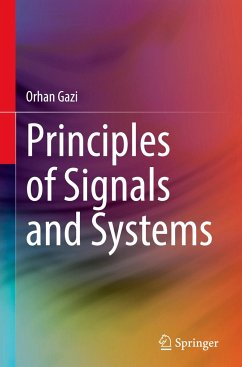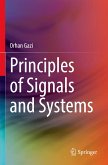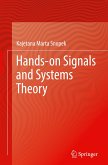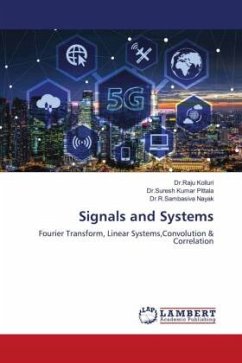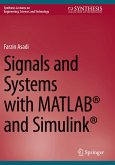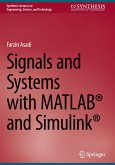The textbook presents basic concepts of signals and systems in a clear manner, based on the author's 15+ years of teaching the undergraduate course for engineering students. To attain full benefit from the content, readers should have a strong knowledge of calculus and be familiar with integration, differentiation, and summation operations. The book starts with an introduction to signals and systems and continues with coverage of basic signal functions and their manipulations; energy, power, convolution, and systems; Fourier analysis of continuous time signals and digital signals; Laplace transform; and Z transforms. Practical applications are included throughout. The book is also packed with solved examples, self-study exercises, and end of chapter problems.
Bitte wählen Sie Ihr Anliegen aus.
Rechnungen
Retourenschein anfordern
Bestellstatus
Storno

